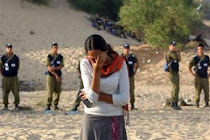My God, the soul that you gave me is pure. You created her, you formed her, you breathed her into me, you guard her within me- and in the future, you will pull her away from me . . . only to eventually return her.
As long my soul is still within me, I thank you my God, the God of those I come from, master of all actions, lord of all souls. Baruch Atah Hashem, Elokeinu Melekh Ha'Olam, who will return souls to the bodies of the dead. [1]
Here are six nuances that, for me, characterize Elohei Neshama:As long my soul is still within me, I thank you my God, the God of those I come from, master of all actions, lord of all souls. Baruch Atah Hashem, Elokeinu Melekh Ha'Olam, who will return souls to the bodies of the dead. [1]
1. The personal, singular, conversational tone between man and God, where the most common Divine name is “You.”
2. Many prayers describe Hashem, but this one describes man. For the most part, God is mentioned only to relate His imprint in us.
3. In English, the soul is an “it”- metaphysical, distant, apart. But in Hebrew’s neutered tongue, the soul is a “she”- human, close, part of me. [2]
4. There are two ways to emphasize the second sentence. “You created her, you formed her, you breathed her into me, etc,” with the verse listing God’s many steps in the production of the soul. I find that meaningless. Rather, emphasize the you’s: my soul is pure because you created it, you formed it, etc.
5. For all the talk of creation, life, and breath, this tefilla twice mentions death. It’s inspiring in a way both powerful and chilling how the davener thanks God for that precious time while “my soul is still within me.”
6. In its original form, and according to the Rambam's psak, Elohei Neshama is said upon waking, much like the modern day Modeh Ani. [3]
Upon waking, we declare to God, “I am Pure, a product-piece of You, aware of the ‘Divine-amazing’ that is life while conscience of its fleeting nature.” This is not a particularly ritualistic or Judeo-centric prayer; it talks to the basics that compose our perceptions of life, identity, and destiny. Thus the picture. My first thought was a generic sunrise shot- you know, one of those nice views that we instinctively associate with purity, freshness, and God. But I soon realized that it needed a person- this prayer is not about spiritual realms, but about me. Nonetheless, the sun and its colors are still symbolic of God, and I fell in love with the (attempted) interaction between woman and Divine; is that not the tefilla’s central theme! Plus, the notion of sunset, while in my view more beautiful than sunrise, carries with that beauty a realization of the ever-looming end.
Notes:
[1] My translation is by no means literal; it’s written to stress in English select ideas and styles which can be read within the Hebrew. Translating "Avotei" as "those I come from" is a perfect example. "Forefathers" has a stiff and antiquated connotation in English which, I find, clashes with the rest of the text. But "those I come from" is clearly an important component of what we mean when evoking our esteemed ancestors.
[2] Obviously a Hebrew “she” is weaker, since it also describes words that would be genderless in English. (If you use “she” to describe dinner plates, deeming a soul feminine does not imply much.) Nonetheless, the weak-ish Hebrew “she” still outweighs the completely cold, neutral “it.”
[3] Brachot 60b; Hilchot Tefilla 7:3






No comments:
Post a Comment